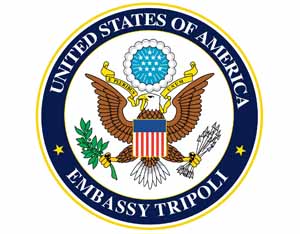By Sami Zaptia.
London, 24 July 2020:
The U.S. Embassy Tripoli reported yesterday that its Ambassador, Richard Norland, had spoken on 22 July with House of Representatives (HoR) Speaker Ageela Saleh.
The embassy reported that the two had discussed the U.S. ‘‘supporting Libya’s sovereignty, enabling the National Oil Corporation to resume operations nationwide, and achieving a negotiated, peaceful resolution to the Libya conflict beginning with the stabilization of the situation around Sirte and Jufra’’.
The report also said that Ambassador Norland had ‘‘reiterated U.S. opposition to all foreign military interference in Libya and full support for UN-facilitated dialogue’’.
The shorthand and quasi-coded report is seen by analysts as a communication of the U.S opposition to continued fighting. Anti-Turkey analysts have chosen to interpret it as a signal to Turkey and the Tripoli government, on one hand, to abandon plans to ‘‘liberate’’ all Libyan soil, beyond the Sirte-Jufa de facto ceasefire ‘‘red’’ line.
On the other hand, it can be seen as a message to Egypt to refrain from overtly sending in its army into Libya. ‘‘Beginning with the stabilization of the situation around Sirte and Jufra’’ is seen as the imposition of a ceasefire at the present de facto red line, whilst ‘‘enabling the National Oil Corporation to resume operations nationwide’’ is seen as coming up with a deal – now that the audit of the two Central Banks seems to be back on – for an acceptable mechanism for the distribution of Libya’s oil revenues.
It must, however, be recalled that there have been umpteen such type of statements on Libya from the U.S. and other major power on Libya – with no actionable results.
It will also be recalled that a number of state leaders have conducted recent phone calls with U.S. President Donald Trump and that there has been a difference in policy emphasis between Trump and his State Department – which leaders, including Hafter, have exploited.







